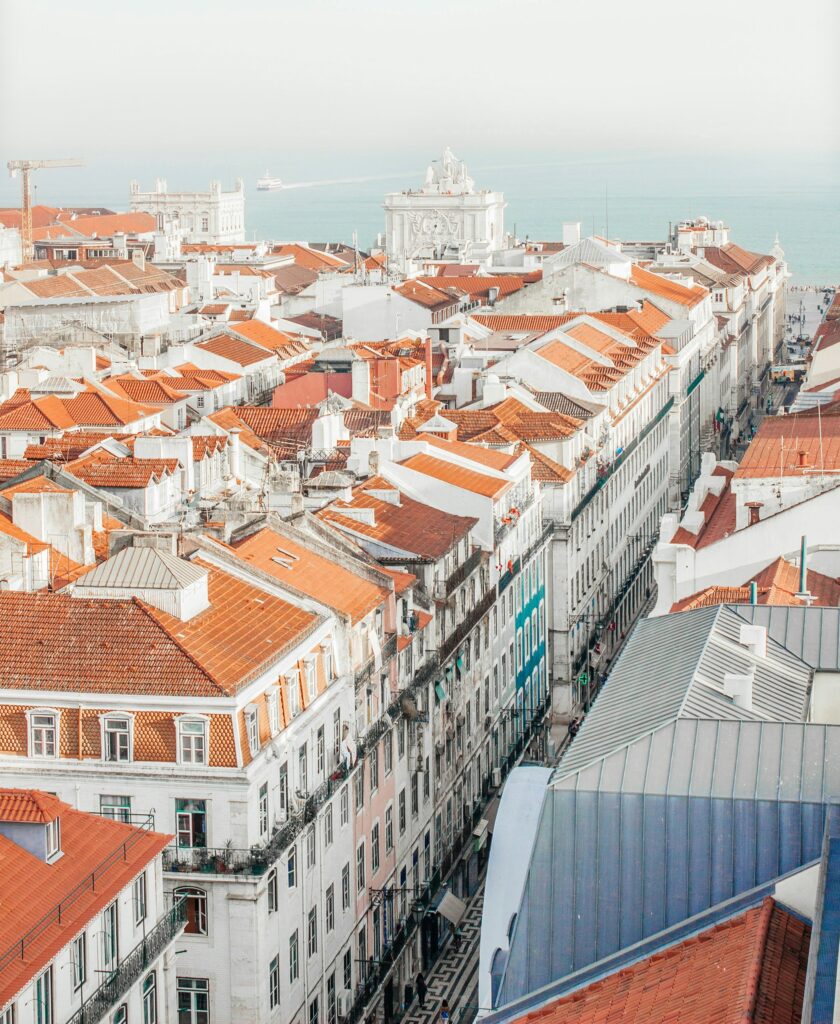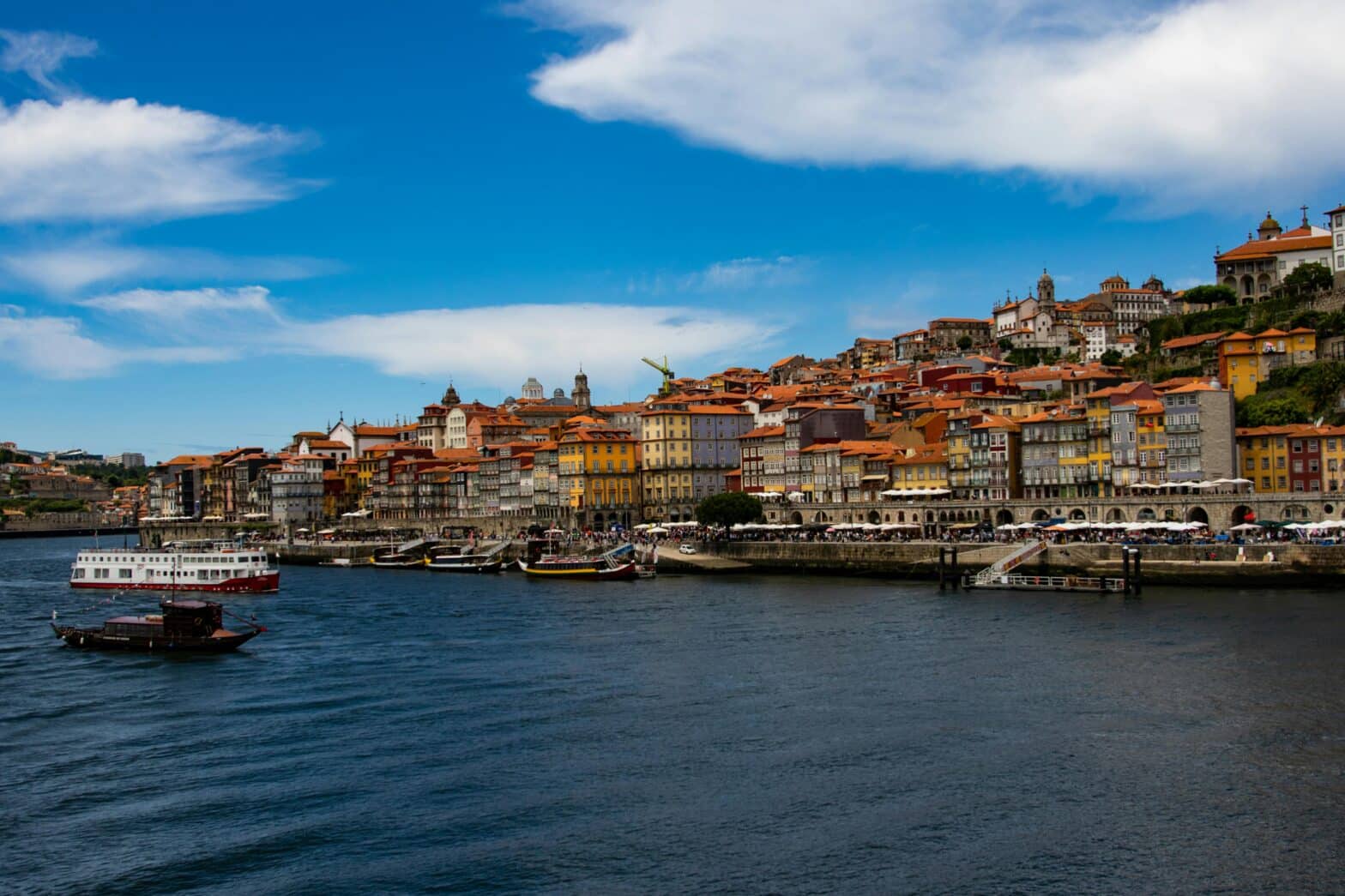Portugal, with its rich history, vibrant culture, and affordability, is a top destination for expatriates in Europe. This guide delves into the country’s financial landscape, emphasizing Portugal cost of living to help expats plan their relocation.
The affordability of Spains Western neighbor is a significant draw, especially compared to other Western European countries. We’ll explore everyday expenses, from housing and healthcare to leisure activities and transportation, providing practical insights for budgeting.
Each region in Portugal, from the bustling Lisbon to the serene Algarve, offers unique economic factors that impact the cost of living in Portugal. By understanding these dynamics, expatriates can make informed decisions for a seamless transition to life here.
Understanding the Costs in Portugal
Portugal’s Currency and Exchange Rate
Portugal, as a member of the Eurozone, utilizes the Euro (€) as its official currency. The stability of the Euro provides expatriates with a predictable financial environment for managing their expenses. As of June 2024, the exchange rate stands at approximately 1 Euro = 1.09 USD.
Cost of Living in Portugal – Europe
In comparison to other countries in Western Europe such as Switzerland, Germany, and the UK (United Kingdom), or other Mediterranean countries such as France or Spain, the average cost living in Portugal is significantly more affordable. On average, living expenses in Portugal are approximately 30% to 40% lower than these countries, making low cost living an option, especially compared to the big expensive cities like London. However, Portugal cost living tends to be slightly more expensive than some Eastern and Southern European nations.
Portugal – United States Comparison
Let’s start with a look of a comparison of living in Portugal-USA. Compared to Portugal, the United States cost more, Portugal offers a more affordable cost of living across various aspects and is generally many percentage lower compared to Washington. For instance, rental prices for a comparable apartment are generally about half of what you might expect to pay in major U.S. cities. Overall, living in Portugal is estimated to be around 25% to 35% cheaper than in the United States.
Estimated Living Costs in Portugal
For a family of four, the average monthly budget to live comfortably in Portugal ranges from approximately 2,000 to 2,500 Euros, excluding housing expenses. As a single person or a couple, the estimated monthly expenses are typically between 1,200 to 1,800 Euros, depending on lifestyle choices and location.
Housing Prices in Portugal
Finding suitable accommodation is a key consideration for expatriates moving to this country. Housing costs vary significantly depending on location, size, and amenities. In major cities like Lisbon, Porto, or Faro or seaside resorts like Albufeira or Cascais, expats can expect to rent a bedroom apartment rents compared to suburban or rural areas. For instance, rent for a bedroom apartment near the city center typically ranges from €600 to €1000 per month, while prices in outlying areas may be more affordable. Square meter prices for rentals in the five main cities are as follows, with cost of living Lisbon being the highest:
- Lisbon: €12 to €18 per square meter
- Porto: €10 to €15 per square meter
- Faro: €8 to €12 per square meter
- Coimbra: €7 to €10 per square meter
- Braga: €6 to €9 per square meter

Portugal Taxes
The country’s taxation system is essential to understand for expatriates planning their finances. Value-added tax (VAT) is a significant component, standing at 23% for most goods and services.
Portugal Healthcare
The healthcare system in Portugal is primarily funded through taxation and is accessible to both residents and expatriates.
Access to Healthcare
Expatriates legally residing and working in Portugal, including EU/EEA nationals with a European Health Insurance Card (EHIC), have access to emergency and necessary healthcare services at the same cost as Portuguese citizens within the public healthcare system. However, comprehensive international health insurance is recommended for coverage beyond emergency services.
Non-EU/EEA nationals are advised to secure private European health insurance or global health insurance from reputable providers to cover medical expenses comprehensively.
Costs for Healthcare Services in Portugal
Here are typical costs in Portugal for healthcare services:
- Normal doctor consultation: 30 – 50€
- Specialist consultation: 40 – 80€
- Prescription medication: 5 – 20€
- Dental check-up: 40 – 60€
- Emergency room visit: 75 – 150€ (for non-residents without EHIC)
Health Insurance Premiums
Depending on coverage levels, age, and other factors, health insurance premiums for expatriates in Portugal generally range from 50 to 200€ per month.
The country’s healthcare system offers a range of services, with public healthcare covering basic needs and private healthcare providing more extensive and faster access to specialized treatments. Expatriates are encouraged to assess their healthcare needs and secure appropriate private health insurance coverage to ensure access to the best medical care available in the country.
Cost of Utilities in Portugal
Basic Utilities (electricity, heating, cooling, water, garbage) for 85m2 Apartment are on average 100 – 120€.
Electricity costin Portugal :
The average wholesale electricity price in Portugal stood at 30.7 euros per megawatt-hour in May 2024
Mobile phone and internet
Mobile phone monthly plan with calls and 10GB data costs around 20€. Internet (60 Mbps or More, Unlimited Data, Cable/ADSL) is around 40€/month.
Food prices in Portugal
Groceries
Water (1.5-liter bottle): 0.50 – 1.00€
White rice (1kg): 0.80 – 1.50€
Milk (1 liter): 0.60 – 1.20€
Eggs (12 units): 1.50 – 3.00€
Chicken fillets (1kg): 5.00 – 8.00€
Round of beef (1kg): 12.00 – 18.00€
These prices provide an overview of common grocery items and what to expect in terms of costs. For a family of four, monthly grocery expenses typically amount to around €600 to €800, while a single person might spend about €200 to €300 per month.
Cost of dining out in Portugal
Cafes or casual restaurants
An inexpensive meal: 7 – 15€ per person, including a basic dish like a sandwich or salad.
Mid-range restaurant: 15 – 30€ per person including a main course and a drink.
Fine Dining: Gourmet dining 30 – 100€ or more per person for a full-course meal with wine.
Leisure and Transport
Leisure Activities
Expatriates in Portugal have a wealth of leisure options to explore. From cultural attractions to outdoor activities, there’s something for everyone. A cinema ticket costs approximately 7€, providing affordable entertainment for movie enthusiasts. Gym memberships range from €20 to €50 per month, catering to various fitness needs and budgets.
Public Transport Costs
Public transport in Portugal is affordable and convenient, making it an excellent option for expatriates to travel within cities and across the country. As of 2024, the approximate fares for various modes of public transport are as follows:
- Single Ticket (bus or tram): 1.80 €
- Day Pass: 6.00 €
- Weekly Pass: 20.00 €
- Monthly Pass: 40.00 €
Discounts are available for students, seniors, and persons with disabilities. Additionally, the country offers extensive train services, with intercity and regional connections that make it easy to explore different parts of the country. Ferries are also available for travel between the mainland and the Azores and Madeira islands, as well as taxis and rental cars for more flexible travel options.
Education
Expatriates with children have access to a range of educational opportunities in Portugal. Public, private, and international schools cater to different needs and preferences.
International schools, offering English-language programs following international curricula such as the International Baccalaureate (IB) or the British National Curriculum, are popular among expat families. Tuition fees for international schools typically range from 5000 € to 12.000 € per year, depending on the school and grade level, with additional expenses such as uniforms and extracurricular activities.
Visa and Immigration
Navigating visa and immigration requirements is essential for expatriates planning to move to Portugal. The country offers various visa options, including the Golden Visa program, which provides residency and citizenship pathways for investors and entrepreneurs. Understanding these processes is crucial to ensure a smooth transition and compliance with legal requirements. The digital nomad visa is also a popular option for those working remotely.
Portugal Golden Visa
A special program for investors, granting residency for significant financial investments in the country and requirements have recently been changed.
How to get the Golden Visa for Portugal:
- Investment: real estate purchase, capital transfer, or job creation.
- Documents: application form, passport photos, valid passport, proof of investment, financial means and health insurance, and criminal record certificate.
- Submit the application at the Portuguese Immigration and Borders Service (SEF).
- Attend biometrics appointment
- Processing can take several months.
Digital Nomad Visa
Portugal has introduced a Digital Nomad Visa to boost its economy by attracting skilled professionals who can work remotely.
How to get the Digital Nomad Visa:
- Proof of employment or business ownership elsewhere than Portugal.
- Stable income that meets the minimum threshold set by the Portuguese government. Around four times the minimum wage in Portugal.
- Valid health insurance coverage
- No Criminal Record
- Proof of accommodation in Portugal
Additional Considerations
In addition to these practical aspects, expatriates should also consider other costs living, such as banking, daily expenses, utilities, and entertainment when planning their move. By thoroughly researching and understanding the financial landscape and practical considerations outlined above, expatriates can make informed decisions and enjoy a seamless transition to their new life in Portugal.
So, Is Portugal Worth It?
Whether entranced by the vivacious pulse of Lisbon, the time-honored allure of Porto, or the serene vistas of the Algarve, Portugal beckons with its diverse tapestry of lifestyles. Embracing expatriates with manageable costs and an inclusive ambiance, it stands as a gateway to fresh European adventures. From housing considerations to healthcare options and leisure pursuits, the country presents a wealth of opportunities for savvy expatriates to optimize their resources and enhance their quality of life.
